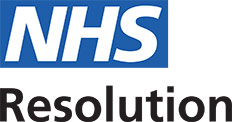About
From 1 April 2019, NHS Resolution is operating a new state indemnity scheme for general practice in England called the Clinical Negligence Scheme for General Practice (CNSGP). The scheme covers clinical negligence liabilities arising in general practice in relation to incidents that occurred on or after 1 April 2019. CNSGP provides a fully comprehensive indemnity for all claims within its scope.
We’ve produced a range of materials to help support general practice during the Covid-19 pandemic. This includes guidance to help clarify how beneficiaries’ interactions with NHS Resolution concerning claims will proceed during the pandemic and our Covid-19 clinical negligence protocol.
Scheme frequently asked questions
Please refer to our Covid-19 Vaccinations NHS Staff Indemnity – FAQs, which are available from our Covid-19 Vaccinations webpage.
For the 2021/22 flu vaccination season only, the seasonal influenza vaccination programme enhanced service specification has been updated to enable practices to vaccinate primary care contractors (primary medical services, pharmaceutical services, primary dental services or general ophthalmic services) and their frontline staff, who are either registered with the GP practice or not registered with the GP practice (therefore including peer to peer vaccinations), and who elect to receive their vaccination from the GP practice. As the service is offered and provided under the terms of the seasonal influenza vaccination enhanced service specification and therefore under a primary medical services contract (GMS, PMS, APMS or Schedule 2L provisions under an NHS Standard Contract) the activity falls within the scope of the Clinical Negligence Scheme for General Practice (CNSGP)
For further information regarding the 2021/22 seasonal influenza vaccination programme, please refer to the guidance published by NHS England and Improvement
There is no blanket requirement for you to notify NHS Resolution of conditions placed on your licence to practice. We may however request you to provide this information where you are involved in a claim notified to us and these details are reasonably required for the purposes of enabling NHS Resolution to effectively manage the claim on your behalf in accordance with the scheme rules.
In the event details of practice conditions are provided to NHS Resolution where we have not requested this information, we will respond to make it clear that we do not need to be notified and the information will be deleted.
If you are required by your MDO or other indemnifier to report such matters, you should continue to do so.
All providers of NHS primary medical services are covered under CNSGP, including out of hours providers. The scheme extends to all GPs and others working for general practice who are carrying out activities in connection with the delivery of primary medical services – including salaried GPs, locums, students and trainees, nurses, clinical pharmacists, agency workers and other practice staff.
In addition to NHS primary medical services, any other NHS services provided by general practice are also covered under CNSGP (namely, NHS activities carried out by or for a provider whose principal activity is to provide NHS primary medical services). These ‘other’ NHS services are referred to in the regulations that establish CNSGP[1] as “ancillary health services”. This means general practices are covered for all of their NHS services, including local authority commissioned public health services.
The place at which activities are carried out, the status of the person carrying out the activity, the form of the entity responsible for the provision of the NHS services in question and the individual circumstances of the patient concerned are not relevant to the scope of CNSGP. The question is whether the services provided are NHS primary medical services, and where they are not NHS primary medical services, whether they are NHS services provided by general practice [namely, by a provider whose principal activity is to provide NHS primary medical services]. This means that different kinds of organisations are covered under the scheme for activities they carry out which are in scope of the scheme.
Claims made against GP practices or other organisations providing NHS primary medical services or ancillary health services are covered under the scheme. This includes claims made in respect of liabilities that arise as a consequence of the acts or omissions of employees and others engaged to carry out activities connected to the provision of such services.
This scheme scope table outlines types of work carried out by general practice staff and whether or not it is covered by CNSGP.
The scheme applies to any liability in tort (civil wrongdoings which include clinical negligence) that arises as a consequence of a breach of a duty of care owed by a GP contractor[2] or GP sub-contractor[3] to a third party in connection with the provision of primary medical services or ancillary health services where –
(a) An act, or omission, on the part of the GP contractor/sub-contractor (or any employee or other person engaged by them) results in personal injury or loss to the third party;
(b) The act, or omission, is in connection with the diagnosis of an illness or the provision of care or treatment to the third party; and
(c) The act or omission occurs on or after 1 April 2019.
[1] The National Health Service (Clinical Negligence Scheme for General Practice) Regulations 2019.
[2] A GP contractor is a person or organisation who holds a general medical services (GMS), personal medical services (PMS) or alternative provider medical services (APMS) contract or agreement made under Part 4 of the National Health Service Act 2006 – i.e. GP contracts.
[3] A GP sub-contractor is a person or organisation that provides primary medical services under a sub-contract with a GP contractor (i.e. a primary medical services sub-contractor. It also includes a person providing ancillary health services under a sub-contract with a GP contractor or a primary medical services sub-contractor.
Documents for the Clinical Negligence Scheme for General Practice
-
Scheme documentation
Covid-19 Guidance for general practice
This guidance has been prepared to support the beneficiaries of our schemes during the Coronavirus pandemic. It aims to clarify how beneficiaries’ interactions with NHS Resolution concerning claims will proceed during the pandemic. It also provides answers to the questions we most often receive regarding …
-
Scheme documentation
Scheme scope
This document outlines types of work carried out by general practice staff and whether or not it is covered by the Clinical Negligence Scheme for General Practice (CNSGP).
-
Scheme documentation
CNSGP Scheme rules
The Clinical Negligence Scheme for General Practice (CNSGP) and Existing Liabilities Scheme for General Practice (ELSGP) scheme rules provide a general description of the schemes, the relevant liabilities, the benefits of the schemes, how disputes and appeals are resolved and how the schemes are implemented.
-
Scheme documentation
Summary of the CNSGP scheme rules
This summary of the Clinical Negligence Scheme for General Practice (CNSGP) scheme rules provide an introduction to the full scheme rules document.
-
Scheme documentation
When and how to report a claim
These claims reporting guidelines will help beneficiaries of the Clinical Negligence Scheme for General Practice (CNSGP) know when and how to report a claim.
-
Scheme documentation
Responding to complaints
Effective local complaints handling is not only the right thing to do for patients but can help to prevent a concern escalating into a claim for compensation. This guidance provides some information on best practice.
-
Scheme documentation
How long patients have to bring a claim
Courts apply rules to the time period for bringing legal action, known as limitation. This guidance sets out how limitation applies in clinical negligence cases.
-
Scheme documentation
When compensation is due
Clinical negligence is complex, and finding out that a patient is bringing a claim against you can be stressful and confusing, it also can sometimes seem unclear as to whether something you have done or failed to do as a practitioner means that a patient …
-
Scheme documentation
What happens when a claim is brought
This guidance sets out some of the procedural steps that you may encounter as a claim progresses towards resolution.
-
Scheme documentation
Disclosing records
This document provides guidance on what you need to do when asked to disclose records for a compensation claim made against you.
-
Scheme documentation
General practice indemnity guidance for CNST members
This guidance aims to explain the changes that will come about following the introduction of the state backed indemnity scheme for general practice (Clinical Negligence Scheme for General Practice, CNSGP) and to provide reassurance to members of our Clinical Negligence Scheme for Trusts (CNST) that …
-
Scheme documentation
General practice indemnity guidance for claimant solicitors
This document provides guidance for claimant solicitors following the introduction of the state backed indemnity scheme for general practice (Clinical Negligence Scheme for General Practice, CNSGP).
Page last updated on:








